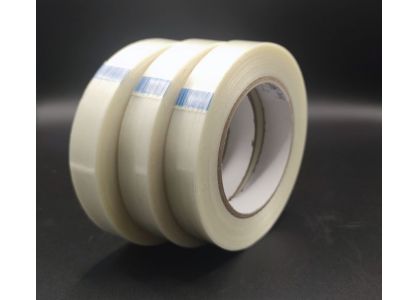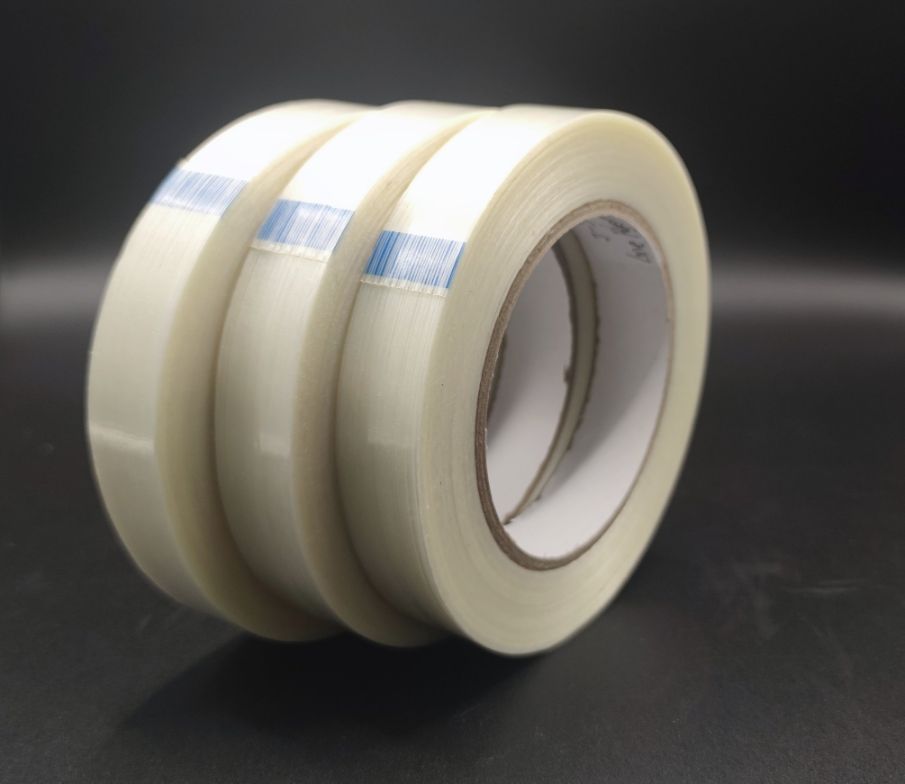
When it comes to electrical insulation, filament electrical tape is a crucial option in various industries. Known for its robust properties, it is widely used for bundling wires, providing insulation, and enhancing durability in electrical applications. Understanding the temperature tolerance of this tape is essential to ensure optimal performance and safety in your projects. In this article, we will explore the key features and temperature limits of fiberglass tape for electrical insulation, as well as provide insights on how to select the best option for your needs.
Fiberglass electrical tape is a strong, pressure-sensitive tape reinforced with fiberglass filaments. This construction gives it excellent tensile strength, making it suitable for demanding applications, including wiring harnesses, automotive repairs, and heavy-duty electrical tasks. The combination of fiberglass and an acrylic adhesive provides not only mechanical strength but also effective electrical insulation properties. This makes high temp fiberglass tape an ideal choice for environments where heat resistance is necessary.
Most fiberglass insulation tape products generally have a temperature tolerance ranging from around 105°C (221°F) to 155°C (311°F). While some premium varieties can handle even higher temperatures, 155°C is a common upper limit. This characteristic makes it suitable for applications involving significant heat exposure, such as electrical insulation in heating elements or in environments where electronic devices generate substantial heat.
It is important to note that while fiberglass electrical tape is designed to withstand high temperatures, prolonged exposure to levels close to its maximum tolerance can compromise its adhesive properties. Over time, high temperatures may weaken the tape, reducing its effectiveness and leading to potential failures in your applications. Therefore, it's essential to select a tape that not only meets but exceeds the temperature requirements of your specific project.

Several factors can influence the temperature tolerance and performance of fiberglass tape for electrical insulation:
Material Composition: The thermal resistance of fiberglass electrical tape greatly depends on the materials used in its construction, including the type of adhesive. The acrylic adhesive commonly used is known for its durability and heat resistance, ensuring the tape remains effective even in challenging conditions.
Environmental Conditions: Humidity and exposure to chemicals are significant considerations. High-humidity environments or exposure to solvents can diminish the tape's adhesive strength and overall effectiveness, especially under high temperatures.
Duration of Exposure: The length of time the tape is subjected to elevated temperatures plays a critical role in its performance. While short bursts of heat may not damage the tape, extended exposure can lead to adhesive breakdown and loss of mechanical properties.
Application Type: Understanding the application is vital. For tasks that involve insulation in high-temperature zones, using high temp fiberglass tape is paramount to ensure safety and reliability.
Selecting the appropriate fiberglass insulation tape for your project involves several key considerations:
Temperature Requirements: Assess the maximum temperature your application will encounter and choose a tape that can comfortably exceed that limit. This will help maintain performance without risking adhesive failure.
Environmental Factors: Consider any chemicals, humidity, or solvents that might affect the tape's performance. The right tape should withstand not only high temperatures but also harsh environmental conditions.
Performance Specifications: Always check the manufacturer’s specifications for temperature ratings and other performance attributes. This information is crucial for ensuring that the tape you select will meet your operational demands.
Fiberglass electrical tape is a versatile and robust choice for various electrical applications, but it is vital to understand its temperature tolerance to ensure effectiveness and safety. With a typical temperature range of 105°C to 155°C, selecting the right product is essential for achieving optimal performance in your projects. By carefully considering factors that influence temperature resistance, and by consulting manufacturer specifications, you can make informed decisions that will enhance the longevity and reliability of your applications. When in doubt, opt for fiberglass tape for electrical insulation that meets or exceeds your requirements to ensure dependable performance under diverse conditions.